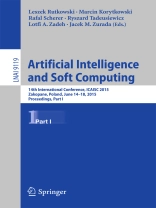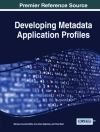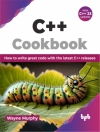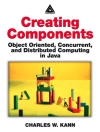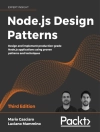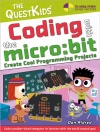The two-volume set LNAI 9119 and LNAI 9120 constitutes the refereed proceedings of the 14th International Conference on Artificial Intelligence and Soft Computing, ICAISC 2015, held in Zakopane, Poland in June 2015. The 142 revised full papers presented in the volumes, were carefully reviewed and selected from 322 submissions. These proceedings present both traditional artificial intelligence methods and soft computing techniques. The goal is to bring together scientists representing both areas of research. The first volume covers topics as follows neural networks and their applications, fuzzy systems and their applications, evolutionary algorithms and their applications, classification and estimation, computer vision, image and speech analysis and the workshop: large-scale visual recognition and machine learning. The second volume has the focus on the following subjects: data mining, bioinformatics, biometrics and medical applications, concurrent and parallel processing, agent systems, robotics and control, artificial intelligence in modeling and simulation and various problems of artificial intelligence.
Tabla de materias
Neural Networks and Their Applications.- Parallel approach to the Levenberg-Marquardt learning algorithm for feed forward neural networks.- Microarray Leukemia Gene Data Clustering by Means of Generalized Self-Organizing Neural Networks with Evolving Tree-Like Structures.- Innovative Types and Abilities of Neural Networks Based on Associative Mechanisms and a New Associative Model of Neurons.- Complexity of shallow networks representing finite mappings.- Probabilistic Neural Network Training Procedure with the Use of SARSA Algorithm.- Extensions of Hopeld Neural Networks for solving of stereo-matching Problem.- Molecular approach to Hopeld neural network.- Toward work groups classification based on probabilistic neural network Approach.- Adaptation of RBM learning for Intel MIC architecture.- Using an Artificial Neural Network to Predict Loop Transformation Time.- Using Parity-N problems as a way to compare abilities of shallow, very shallow and very deep architectures.- Product Multi-kernels for Sensor Data Analysis.- Fuzzy Systems and Their Applications.- A Fuzzy Approach to Competitive Clusters Using Moore Families.- A Fingerprint Retrieval Technique using Fuzzy Logic-based Rules.- Initial Comparison of Formal Approaches to Fuzzy and Rough Sets.- Comparative approach to the multi-valued logic construction for Preferences.- Learning Rules for Type-2 Fuzzy Logic System in The Control of De NOx Filter.- Selected Applications of P1-TS Fuzzy Rule-Based Systems.- Fuzzy Agglomerative Clustering.- An exponential-type entropy measure on intuitionistic fuzzy sets.- Comparative Analysis of MCDM Methods for Assessing the Severity of Chronic Liver Disease.- Solving Zadeh’s challenge problems with the application of RDM-arithmetic.- The Directed Compatibility Between Ordered Fuzzy Numbers – a Base Tool for a Direction Sensitive Fuzzy Information Processing.- Learning Rules for Hierarchical Fuzzy Logic Systems with Selective Fuzzy Controller Activation.- A new approach to the rule-base evidential reasoning with application.- Bias-correction fuzzy c-regressions algorithm.- Interval Type-2 Locally Linear Neuro Fuzzy Model based on Locally Linear Model Tree.- Evolutionary Algorithms and Their Applications.- Hybrids of two-subpopulation PSO algorithm with local search methods for continuous optimization.- Parallel coevolutionary algorithm for three-dimensional bin packing Problem.- Adaptive Differential Evolution: SHADE with Competing Crossover Strategies.- A Parallel Approach for Evolutionary Induced Decision Trees.- MPI+Open MP Implementation.- On the ability of the one-point crossover operator to search the space in a genetic algorithm.- Multiple Choice Strategy for PSO Algorithm Enhanced with Dimensional Mutation.- A hybrid differential evolution-gradient optimization method.- On the Tuning of Complex Dynamics Embedded into Differential Evolution.- IV Classification and Estimation.- Mathematical Characterization of Sophisticated Variants for Relevance Learning in Learning Matrix Quantization Based on Schatten-p-norms.- Adaptive Active Learning with Ensemble of Learners and Multiclass Problems.- Orthogonal Series Estimation of Regression Functions in Nonstationary Conditions.- A comparison of shallow decision trees under real-boost procedure in application to landmine detection using Ground Penetrating Radar.- A new Interpretability Criteria for Neuro-fuzzy Systems for Nonlinear Classification.- Multi-class nearest neighbor classier for incomplete data handling.- Cross-Entropy Clustering approach to One-class classification.- Comparison of the Efficiency of Time and Frequency Descriptors Based on the Different Classification Conceptions.- CNC Milling Tool Head Imbalance Prediction Using Computational Intelligence Methods.- A Feature-based Machine Learning Agent for Automatic Rice and Weed Discrimination.- Relation of average error in Prolate Spheroidal Wave Functions algorithm for bandlimited functions approximation to radius of information.- Algebraic Logical Meta-Model of Decision Processes – New Metaheuristics.- Specific object detection scheme based on descriptors fusion using belief Functions.- Video Key Frame Detection Based on SURF Algorithm.- Automatic Diagnosis of Melanoid Skin Lesions Using Machine Learning Methods.- An Edge Detection using 2D Gaussian Function in Computed Tomography.- Facial displays description schemas for smiling vs. neutral emotion Recognition.- Image Segmentation in Liquid Argon Time Projection Chamber Detector.- Massively parallel change detection with application to visual quality Control.- A Fuzzy Logic Approach for Gender Recognition from face Images with embedded Bandlets.- Interpretation of image segmentation in terms of justifiable granularity.- Information Granules in Application to Image Recognition.- Can we process 2D images using Artificial Bee Colony?.- Workshop: Large-Scale Visual Recognition and Machine Learning.- Improving effectiveness of SVM classier for large scale data.- Reducing time complexity of SVM model by LVQ data compression.- Secure Representation of Images Using Multi-layer Compression.- Images Indexing and Retrieval Using GSOM Algorithm.- Multi-layer Architecture For Storing Visual Data Based on WCF and Microsoft SQL Server Database.- Object Localization Using Active Partitions and Structural Description.- Supervised Transform Learning for Face Recognition.- Fast Dictionary Matching for Content-based Image Retrieval.- Recognition and Modeling of Atypical Children Behavior.- Intelligent Fusion of Infrared and Visible Spectrum for Video Surveillance Application.- Visual Saccades for Object Recognition.- Improving Image Processing Performance using Database User-Defined Functions.
